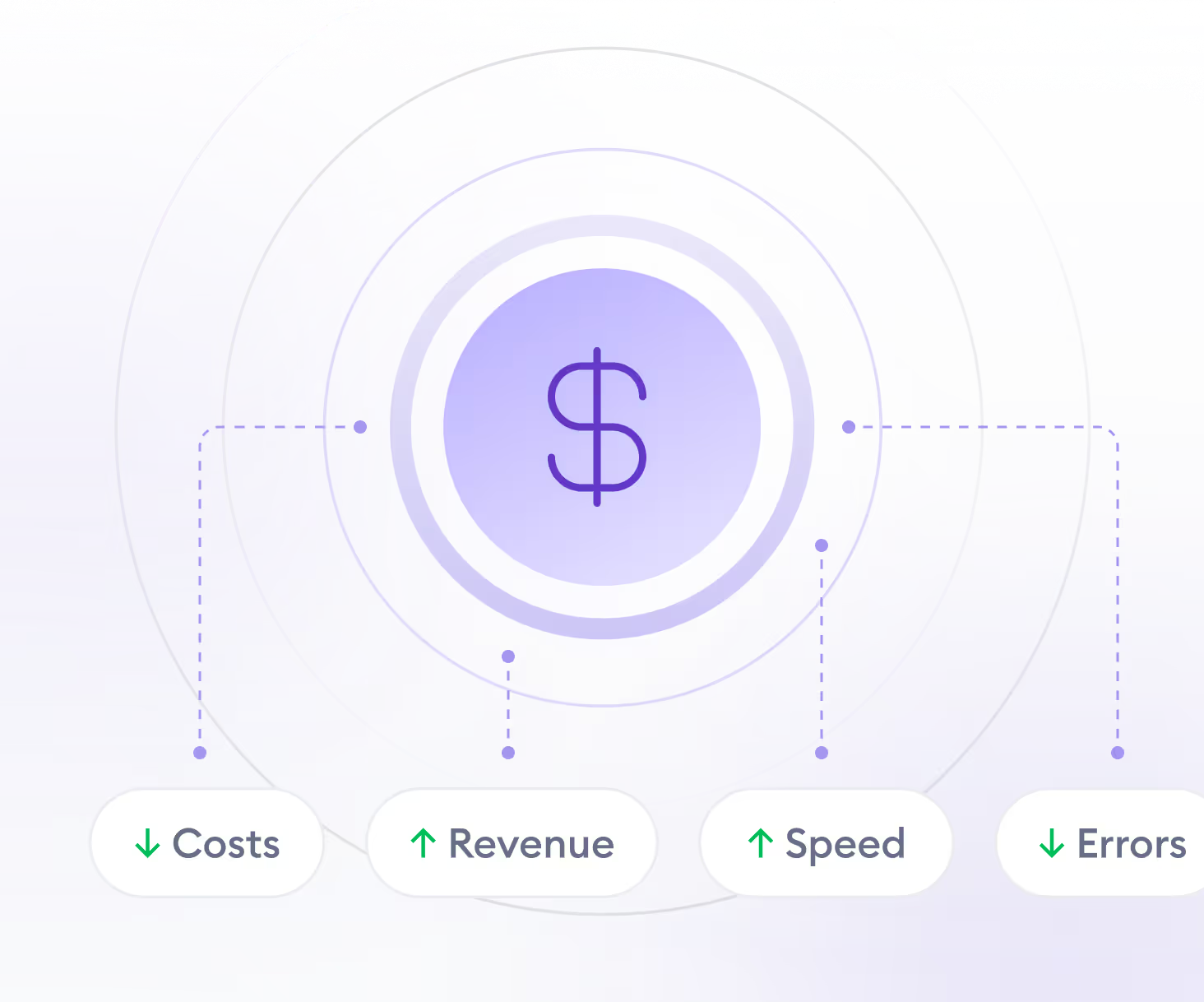
Helping enterprises leverage AI for a data-driven edge
We’ll transform your data into a competitive advantage. Since 2016, BigHub has been helping enterprises develop AI strategies, handle data engineering, and launch custom AI solutions.

















.avif)



Tailor made AI applications
Looking for a custom AI solution? We provide end-to-end services with expertise in applied AI, including Gen AI features like knowledge bases and assistants. Our experts also specialize in machine learning for demand forecasting, cross-selling/upselling etc.
AI strategy and consulting
BigHub helps unlock your company’s AI potential by identifying key use cases, assessing opportunities, and crafting a tailored strategy for real business impact. Our mission is to drive results, not just deploy AI.
Data engineering services
What if you could have cost-effective, scalable solutions that grow with your business? We specialize in Enterprise data platforms, cloud infrastructure optimization, and strengthening Data engineering capabilities.
AI's impact on your business is what matters to us
The uniqueness of collaborating with BigHub.
Business first

Data & AI as Software

Long-term partner

Specializing in AI solutions across industries
Explore the specific challenges we resolve for clients across diverse sectors.
Fraud detection in logistics

Solution for unauthorized electricity theft

Enhancing demand prediction in retail

Automation of manual insurance processes

Improving the precision of patient diagnostics in healthcare

What clients value about BigHub
Read feedback from our trusted business partners.
Discover how BigHub transforms businesses with AI in a wide range of fields
Actions speak louder than words. Explore tangible examples of our solutions.

AI Solution That Saves Fortuna 94% in Costs and Thousands of Hours of Work

How the AI Assistant DIEGO Accelerated Operations at 100+ PLANEO Stores
Partners and certifications
Leveraging these partners, technologies, and certifications, we empower businesses to transform data into a competitive advantage.






Proud of our public success
What the media says about BigHub and who has recognized us.


"Czech BigHub isn’t afraid of big data or big challenges."
BigHub, established in 2016, specializes in cutting-edge data technologies, helps to innovate companies across all industries.

"ČEZ joins forces with BigHub to harness the power of AI."
BigHub was born when corporations failed to harness AI — now it’s one of the region’s fastest-growing companies.



Get your first consultation free
Want to discuss the details with us? Fill out the short form below. We’ll get in touch shortly to schedule your free, no-obligation consultation.
.avif)
News from the world of BigHub and AI
We’ve packed valuable insights into articles — don’t miss out.

AI Agents: What They Are and What They Mean for Your Business
🧠 What Are AI Agents?
An AI agent is a digital assistant capable of independently executing complex tasks based on a specific goal. It’s more than just a chatbot answering questions. Modern AI agents can:
- Plan multiple steps ahead
- Call APIs, work with data, create content, or search for information
- Adapt their behavior based on context, user, or business goals
- Work asynchronously and handle multiple tasks simultaneously
In short, an AI agent functions like a virtual employee — handling tasks dynamically, like a human, but faster, cheaper, and 24/7.
Why Are AI Agents Trending Right Now?
- Advancements in large language models (LLMs) like GPT-4, Claude, and Mistral allow agents to better understand and generate natural language.
- Automation is becoming goal-driven — instead of saying “write a script,” you can say “find the best candidates for this job.”
- Companies want to scale without increasing costs — AI agents can handle both routine and analytical tasks.
- Productivity and personalization are top priorities — AI agents enable both in real time.
What Do AI Agents Bring to Businesses?
✅ 1. Save Time and Costs
Unlike traditional automation focused on isolated tasks, AI agents can manage entire workflows. In e-commerce, for example, they can:
- Help choose the right product
- Recommend accessories
- Add items to the cart
- Handle complaints or returns
✅ 2. Boost Conversions and Loyalty
AI agents personalize conversations, learn from interactions, and respond more precisely to customer needs.
✅ 3. Team Relief and Scalability
Instead of manually handling inquiries or data, the agent works nonstop — error-free and without the need to hire more people.
✅ 4. Smarter Decision-Making
Internal agents can assist with competitive analysis, report generation, content creation, or demand forecasting.
AI Agents in Practice
AI Agent vs. Traditional Chatbot: What's the Difference?
What Does This Mean for Your Business?
Companies that implement AI agents today gain an edge — not just in efficiency, but in customer experience. In a world where “fast replies” are no longer enough, AI agents bring context, intelligence, and action — exactly what the modern customer expects.
What’s Next?
AI agents are quickly evolving from assistants to full digital colleagues. Soon, it won’t be unusual to have an “AI teammate” handling tasks, collaborating with your team, and helping your business grow.

GenAI Is Not the Only Type of AI: What Every Business Leader Should Know
🧠 What Is Generative AI (GenAI)?
Generative AI focuses on creating content — text, images, video, or code — by using large language models (LLMs) trained on huge datasets.
Typical use cases:
- Writing emails, articles, product descriptions
- Generating graphics and images
- Creating code or marketing copy
- Customer support via AI-powered chat
But despite its capabilities, GenAI isn't a one-size-fits-all solution.
What Other Types of AI Exist?
✅ 1. Analytical AI
This type of AI focuses on analyzing data, identifying patterns, and making predictions. It doesn't generate content but provides insights and decisions based on logic and data.
Use cases:
- Predicting customer churn or lifetime value
- Credit risk scoring
- Fraud detection
- Customer segmentation
✅ 2. Optimization AI
Rather than analyzing or generating, this AI finds the best possible solution based on a defined goal or constraint.
Use cases:
- Logistics and transportation planning
- Dynamic pricing
- Manufacturing and workforce scheduling
✅ 3. Symbolic AI (Rule-Based Systems)
This older but still relevant form of AI uses logic-based rules and decision trees. It is explainable, auditable, and reliable — especially in regulated environments.
Use cases:
- Legal or medical expert systems
- Regulatory compliance
- Automated decision-making in banking or insurance
✅ 4. Reinforcement Learning
This AI learns by trial and error in dynamic environments. It’s used when the system needs to adapt based on feedback and outcomes.
Use cases:
- Autonomous vehicles
- Robotics
- Complex process automation
When Should (or Shouldn’t) You Use GenAI?
What Does This Mean for Your Business?
If you're only using GenAI, you might be missing out on significant potential. The real value lies in combining AI types.
Example:
- Use Analytical AI to segment your customers.
- Use GenAI to generate personalized emails for each segment.
- Use Optimization AI to time and target campaigns efficiently.
This multi-layered approach delivers better ROI, reliability, and strategic depth.
Summary: GenAI ≠ All of AI

Why Clean Data Matters (And What It Actually Means to “Have Data in Order”)
🧠 What does it mean to have your data in order?
It’s more than storing files in the cloud or keeping spreadsheets neat.
When your data is “in order,” it means that:
- It’s accessible – people across the company can access it easily and securely
- It’s high-quality – data is clean, up to date, and consistent
- It has context – you know where the data came from, how it was created, and what it represents
- It’s connected – systems talk to each other, there are no data silos
- It’s actionable – the data supports decision-making, automation, and business goals
In short: Clean data = trustworthy and usable data.
How can you tell if your data isn’t in order?
Here are some common red flags:
These challenges are common—startups, scale-ups, and enterprises all face them at some point.
What are the risks of messy or low-quality data?
Slower decisions
Without confidence in your data, decisions are delayed—or based on gut feeling instead of facts.
Wasted resources
Analysts spend most of their time cleaning and merging data, rather than generating value.
Poor customer experiences
Outdated or fragmented data means poor personalization, errors in communication, or missed opportunities.
Blocked AI and automation efforts
You can’t build predictive models or automation without structured, clean data.
What does it take to “clean up your data”?
Data audit
Map out your data sources, flows, and responsibilities.
Data integration
Connect systems like CRM, ERP, e‑shop, marketing platforms into a unified view.
Implement a modern data platform
Build a central, scalable place to store and manage data (e.g., a data warehouse with BI tools).
Ensure data quality
Remove duplicates, validate formats, ensure consistency.
Define governance
Set clear responsibilities for data ownership, access, and documentation.
What’s the business impact?
✅ A single source of truth
✅ Smarter, faster decision-making
✅ Improved collaboration between departments
✅ Stronger foundations for AI, automation, and personalization
✅ More trust in your reporting and forecasts
Final thoughts: Data isn’t just a cost. It’s an asset.
Many companies treat data as a back-office IT issue. But in reality, data is one of your most valuable business assets—and without having it in order, you can’t grow, digitize, or deliver personalized experiences.










.jpeg)

